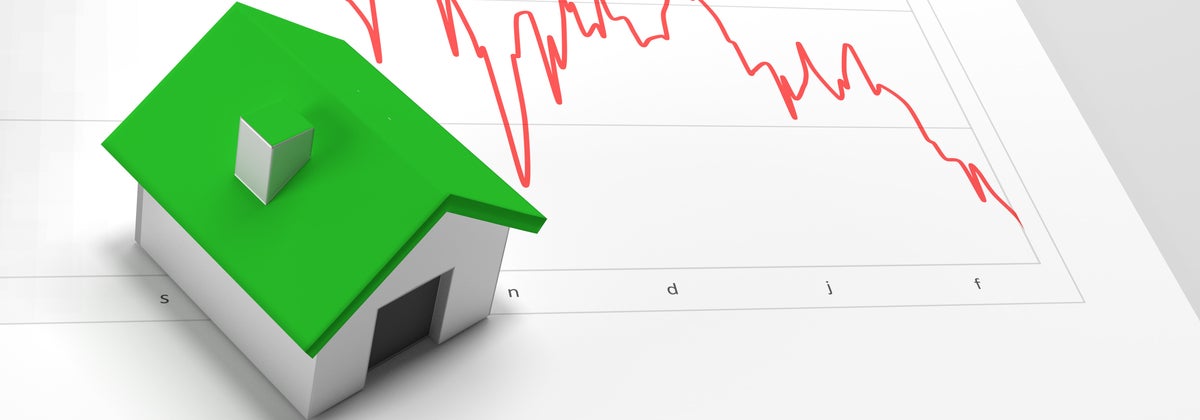House prices in New Zealand might have already bolted, but that isn’t stopping the government slamming the door in the face of Kiwis eager to make a buck from property investment.
New Property Investment Rules … Where to Invest?! In this article, we cover:
- New property investment regulations
- Securities: the alternative to property investment?
- Setting your investment goals
- Investing in property: pros and cons
- Investing in shares: pros and cons
- Have you considered KiwiSaver?
New property investment egulations
Double-digit house price inflation over the past year, fuelled by cheap and easy money, has prompted the government to act. In an attempt to remove speculators from the market and level the playing field for first home buyers, it has announced a raft of new legislation, including:
- Increasing the caps on the First Home Grant and First Home Loan schemes
- Putting $3.8bn into a Housing Acceleration Fund to provide infrastructure for new housing developments
More controversially, the government has taken a fiscal baseball bat to the knees of property investors with two new pieces of legislation that have serious tax implications:
- The bright line test is being moved out from five to ten years. This means if you sell a home that’s not your main residence within a decade of its purchase, you could be liable to a tax of up to 39% on any profits made
- Over the next five years, tax breaks on the interest paid on residential investment mortgages is going to be phased out

Regardless of your level of acceptance/outrage at the new regulations, they’re going to have a serious effect on house prices and the returns available for property investors.
In a recent note, the ASB bank forecasts that:
- Expenses for the typical rental property could be just over $5000 higher per year
- For a new investor buying a typical investment property with a 40% deposit, they’ll need to pay 30% less than current prices for the same pre-legislation returns
Of course, these are just speculative figures. Nobody knows exactly how the new regulations will pan out in relation to rental returns. But when taken in conjunction with increased protection for tenants and the new healthy home requirements for landlords, they certainly leave property investors in a weaker after-tax position.
Securities: the alternative to property investment?
 So with property investment an increasingly less attractive proposition, where to invest? In these days of ultra-low interest rates, money stuck in a bank term deposit sure ain’t what it used to be. For those with a big appetite for risk, there’s always cryptocurrency. Or even trendy new non-fungible tokens (NFTs). Nyancat GIF for $686k, anybody?
So with property investment an increasingly less attractive proposition, where to invest? In these days of ultra-low interest rates, money stuck in a bank term deposit sure ain’t what it used to be. For those with a big appetite for risk, there’s always cryptocurrency. Or even trendy new non-fungible tokens (NFTs). Nyancat GIF for $686k, anybody?
But for the more sage investor, there is always good, reliable securities. In fact, when you look at the numbers over the past 20 years, in terms of growth, it’s clear which asset class has offered the biggest opportunity for profit.
- NZX 50 Index (NZ50) – the main stock market index in NZ
- House Price Index (HPI) – measures NZ house prices
| Index | Index as of Jan 2000 | Index as of Sep 2020 | % Increase |
| HPI | 705 | 2740 | 289% |
| NZ50 | 1172 | 11,793 | 906% |
The first conclusion we can draw from the above figures is that it’s clear that stocks have massively outperformed housing over the past two decades. But it’s important to remember that the NZ50 is just an average. To have made the most of that growth, your investments would have had to track that index, for example in an exchange-traded fund.
It’s also important to remember that, again, those gains are over two decades. During that period there have been sharp drops in the NZ50. Had you cashed out your investments at the height of the COVID-19 sell-off back at the end of March 2020, when the NZ50 slumped to 8498, you would have locked in your losses and missed out the massive rebound. So if you are going to invest, you should set long-term goals. Perhaps the 10 years of the new bright line test!
Learn more: How to Buy Bitcoin in New Zealand
In regards to the housing figures, it’s pertinent to keep in mind that although big institutional investors and listed property trusts do not invest in residential property, many Kiwi Mum and Dads and small-time property investors have made healthy profits from the housing market.
If you own your home, with or without a mortgage, you are already investing in property. In 2000, the median house price in NZ was $170,000. In March 2021, it’s now $780,000, up 22.8% from $635,000 a year ago. If you’ve owned a home during that period, you house will have earned you a tidy return on your mortgage payments and general maintenance costs, on top of providing you with somewhere to call home.
Ultimately, investing is about choosing the right asset class to meet your goals.
Setting your investment goals
Before deciding whether to invest in bricks and mortar, or stocks and shares, you need to set out your investment goals. Some of the important questions you need to ask, include:
- Do I want long- or short-term returns?
- Have I the right level of knowledge about my investment?
- What risk level am I happy with?
- Do I have the time to manage my investment properly?
- Have I sought professional advice?
- What are the tax implications, especially now, in the face of the new regulations?
Then you must balance the pros and cons of each type of investment and how they fit your goals.
Investing in property: pros and cons
Property pros
- Good historic long-term growth
- Measurable and reliable rental yields
- Low-interest mortgages available
- Housing market less vulnerable to global shocks
Property cons
- Need sizeable deposit/equity to invest
- Less diversification
- Less liquidity and higher costs involved with selling asset
- High maintenance/management costs
- Capital gains taxed if sold within ten years of purchase
- New healthy home requirements can be costly to implement
- Tax breaks on the interest paid on residential investment mortgages is going to be phased out
- Returns dependent on long-term trends that are difficult to predict, including population growth and housing market
Investing in shares: pros and cons
Shares pros
- Easy to diversify and spread risk across a range of investments
- High liquidity and low associated costs
- Possibility of no capital gains if you’re a long-term investor
- PIE tax rate lower than top income tax rate: 28%, rather than 33%
- Low-cost entry point
- Low outgoings
Shares cons
- Margin lending rates by banks higher than mortgage lending rates
- More prone to global volatility
- Investing, even in simple Exchange Traded Funds, can involve complex issues
- Tax implications if you’re regularly buying and selling for profit
- Easy to be swayed by emotions and make irrational decisions
Have you considered KiwiSaver?
Ultimately, if you do your research and invest wisely, both real estate and shares have the potential to earn you considerably greater returns than leaving your money in a term deposit account.
If you’re thinking about investing for long-term results, one of the easiest ways to build your portfolio is to add to your existing KiwiSaver investments, which should already match your investor profile.
If you haven’t already aligned your KiwiSaver with your investment goals, we can help with your research, as Canstar rates KiwiSaver providers for value and has a free comparison tool. To check out our KiwiSaver Star Ratings, click here … and for our comparison tool, just click on the big button below.
Compare KiwiSaver providers for free with Canstar!
Enjoy reading this article?
You can like us on Facebook and get social, or sign up to receive more news like this straight to your inbox.
By subscribing you agree to the Canstar Privacy Policy

Share this article